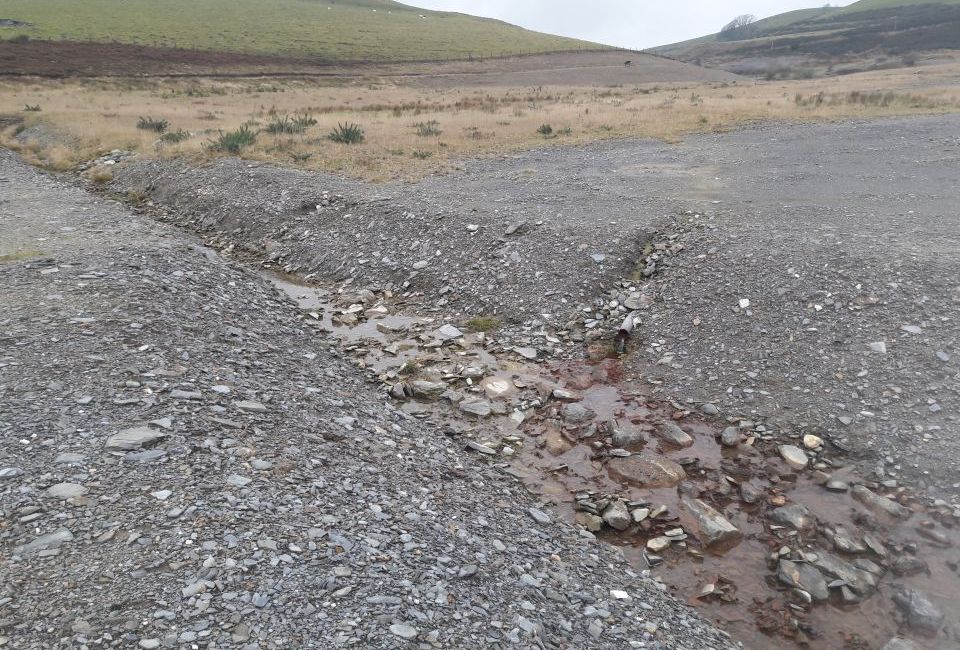
UVic-UCC is organising a symposium on the environmental impact of abandoned mines on aquatic ecosystems
Effluents from abandoned mines may contain high concentrations of heavy metals or salts, which leak through the soil and end up in rivers, where they have a significant impact on the biodiversity and functioning of those ecosystems. The primary objective of the LIFE DEMINE European project, coordinated by the BETA Technology Centre of the University of Vic - Central University of Catalonia (UVic-UCC) is to reduce the impact of these mining effluents by means of a new treatment that will be applied before they reach the river. As part of this project, the research centre is organising a multidisciplinary symposium to address this environmental problem.
The symposium on "Abandoned mines and aquatic ecosystems: the current situation, environmental impacts and possible treatments" will take place in the Segimon Serrallonga hall at the Masia Torre dels Frares on the Vic campus, from 9 am to 2.30 pm on Wednesday 13 November. The morning session will consist of a dozen talks that address three major issues: the current situation and public management of abandoned mines; environmental impacts on aquatic ecosystems; and possible treatments for pollutant mining effluents. The speakers will be representatives of government bodies, scientists and technicians from water treatment companies from all over Spain and Europe.
Attendance at the symposium is free, but registration through the project's website is required before 10 November. The website also contains detailed information on the programme of the event. The activity is aimed above all at environmental managers, researchers and specialist technicians.
A new treatment to reduce environmental impacts
The LIFE DEMINE project, which began in 2017 and will continue until 2021, aims to demonstrate that reducing the overall environmental impact of abandoned mines on aquatic ecosystems is technically and economically viable. To that end, it is developing an innovative and versatile treatment process involving technologies based on membranes and electrocoagulation, with the overall aim of obtaining final effluents that are non-polluting.
Using this new method, the water will first be treated with a membrane system which has different filtration capacities, and therefore different capacities for retaining contaminating particles. The aim of the process is to concentrate the polluting effluent, which subsequently undergoes an electrocoagulation process, which will lead to an even higher level of concentration. In overall terms, the system will reduce the salt and metal content of mining effluents by more than 95%, obtaining treated water that can be poured into the river with no risk to the ecosystem, complying with the legal limits established by legislation and ensuring a low level of environmental impact. So far, the proposed technology has been tested in the laboratory, and obtained very promising results. The pilot plant is currently being prepared, and is going to come into operation in the coming months in an abandoned mine in Wales, which generates effluents with high concentrations of heavy metals.
The objective is to demonstrate and validate the success of the solution, so that it can be easily replicated in any environment with the same environmental problem. For example, in Catalonia there are the salt and potash mines at Cardona, Súria and Sallent, with environments that are severely affected by this problem, where an efficient solution is urgently needed. There are also numerous cases of abandoned mines elsewhere in Spain, such as the coal mines in Asturias. There are currently around 3,460 closed and abandoned facilities containing mining waste in the European Union, according to figures from the European Commission.
Life DEMINE has received European Union funding through its Life programme, and has an overall budget of 2,184,632 Euros. Four other partners as well as the BETA Technology Centre are involved: the University of Swansea (United Kingdom), ELENTEC LTD, a company specialising in water treatment technologies (United Kingdom), the Groundwater Studies Centre in Dresden (Germany), and the Government of the Principality of Asturias(Spain).